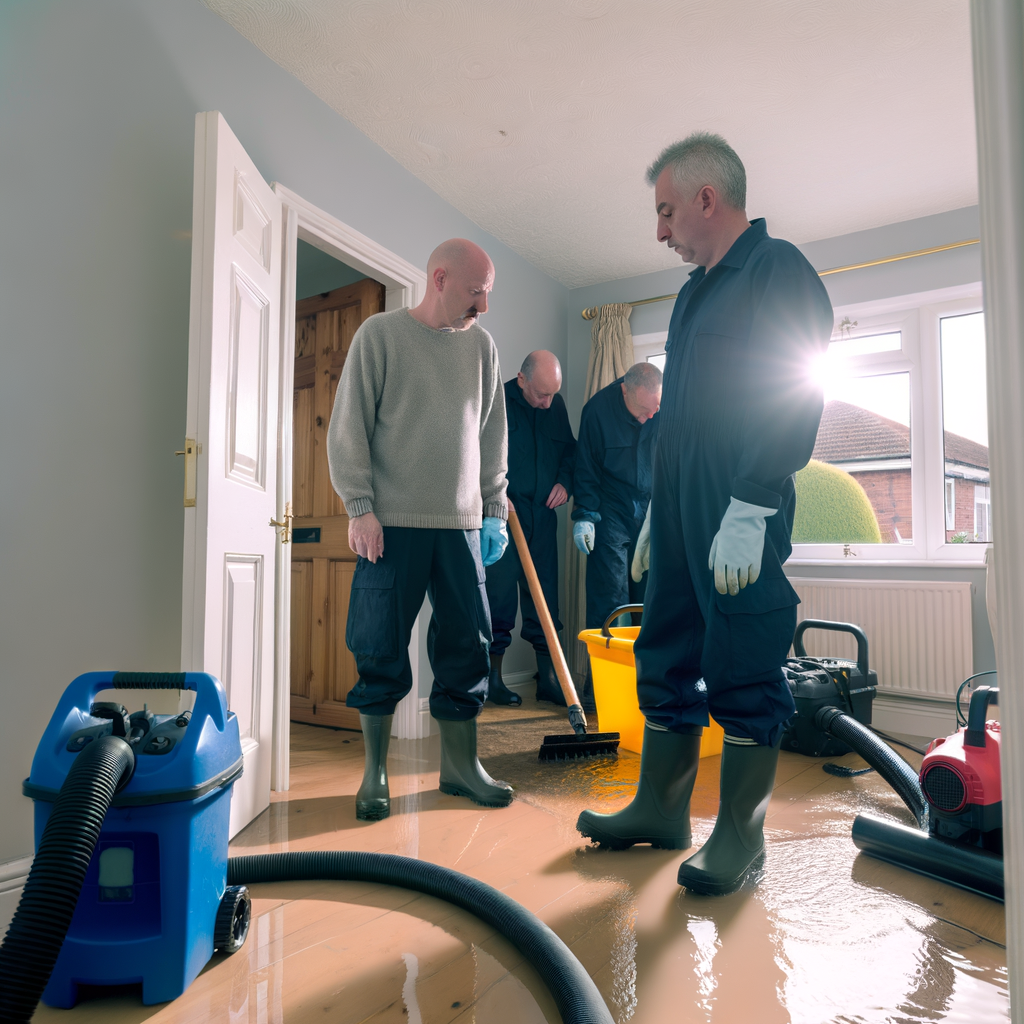Clarifying the Confusion: A Comprehensive Guide to Flood Damage Cleanup, Restoration and Insurance Claims in the UK
Introduction
Flood damages can introduce a slew of crippling disruptions and financial burdens. Quick, organized responses, ranging from clearance to restoration operations can significantly nullify these impacts while ensuring the safety and wellbeing of those affected. Furthermore, an understanding of relevant insurance frameworks can augment your capacity to survive such events, both financially and emotionally. Understanding how to navigate these complexities forms the crux of this comprehensive guide.
Table of Contents
– Understanding the Extent and Types of Flood Damage
– Initial Cleanup and Safety: The First Steps
– Flood Damage Restoration Procedure
– Understanding and Processing Flood Insurance Claims
– Frequently Asked Questions
– Conclusion
Understanding the Extent and Types of Flood Damage
In the UK, floods are a prevailing risk with sizable societal and financial footprints. As per the UK’s Environment Agency, 5.2 million properties, which translates to roughly one in six households, are at risk[1]. Furthermore, and perhaps more alarming, is the average total cost of damage hitting £1.1bn annually[2].
Understanding two primary types of flood damage, structural and cosmetic, is crucial. Structural damage can include a compromised foundation, walls, or roofs, calling for substantial reconstruction work. Cosmetic damages typically affect the property’s appearance with issues like staining, peeling wallpapers, or mould growth.
Initial Cleanup and Safety: The First Steps
The initial cleanup phase should prioritize safety and damage mitigation. This stage may involve tasks such as disconnecting utilities, extracting water, disinfecting areas, and salvaging valuables. Certified restoration professionals usually handle these tasks, adhering to stringent safety standards[3].
Flood Damage Restoration Procedure
Post clean-up, the restoration phase comes into the fray. The process typically involves mould removal, repairing structural damage, reinstalling electricity, and refurbishing decorative elements. British Standard 12999:2015 serves as the operative damages management code, providing specific restoration guidelines[4].
Understanding and Processing Flood Insurance Claims
Post-disaster, insurance claims become a critical lifeline for homeowners. Insurance companies follow a series of steps to assess flood and water damage, calculate the payable sum and disburse it. While the components of policies may vary, Flood Re, a collaborative initiative by insurers and the government, aims to ensure affordable coverage for those at risk[5].
Frequently Asked Questions
What immediate actions should take place following a flood?
How do you classify structural and cosmetic damage?
What are the typical stages in the restoration process?
Can a flood damage insurance claim be denied?
What are some common challenges during the restoration process?
Conclusion
Flood damages can carry significant disruptions and expenses. Albeit distressing, understanding the systematic approach to flood damage cleanup, restoration, and insurance claims can allow a seamless and efficient recovery.
References
[1] Environment Agency. (2018). “The long term flood risk”. Link
[2] Committee on Climate Change. (2018). “Managing the coast in a changing climate”. Link
[3] CIRIA. (2010). “The flood recovery guide”. Link
[4] British Standards Institution. (2015). “Damage management code of practice for the organization and management of the stabilisation, mitigation and restoration of water damaged buildings — Code of practice”. Link
[5] Flood Re. (n.d). “About Us”. Link




